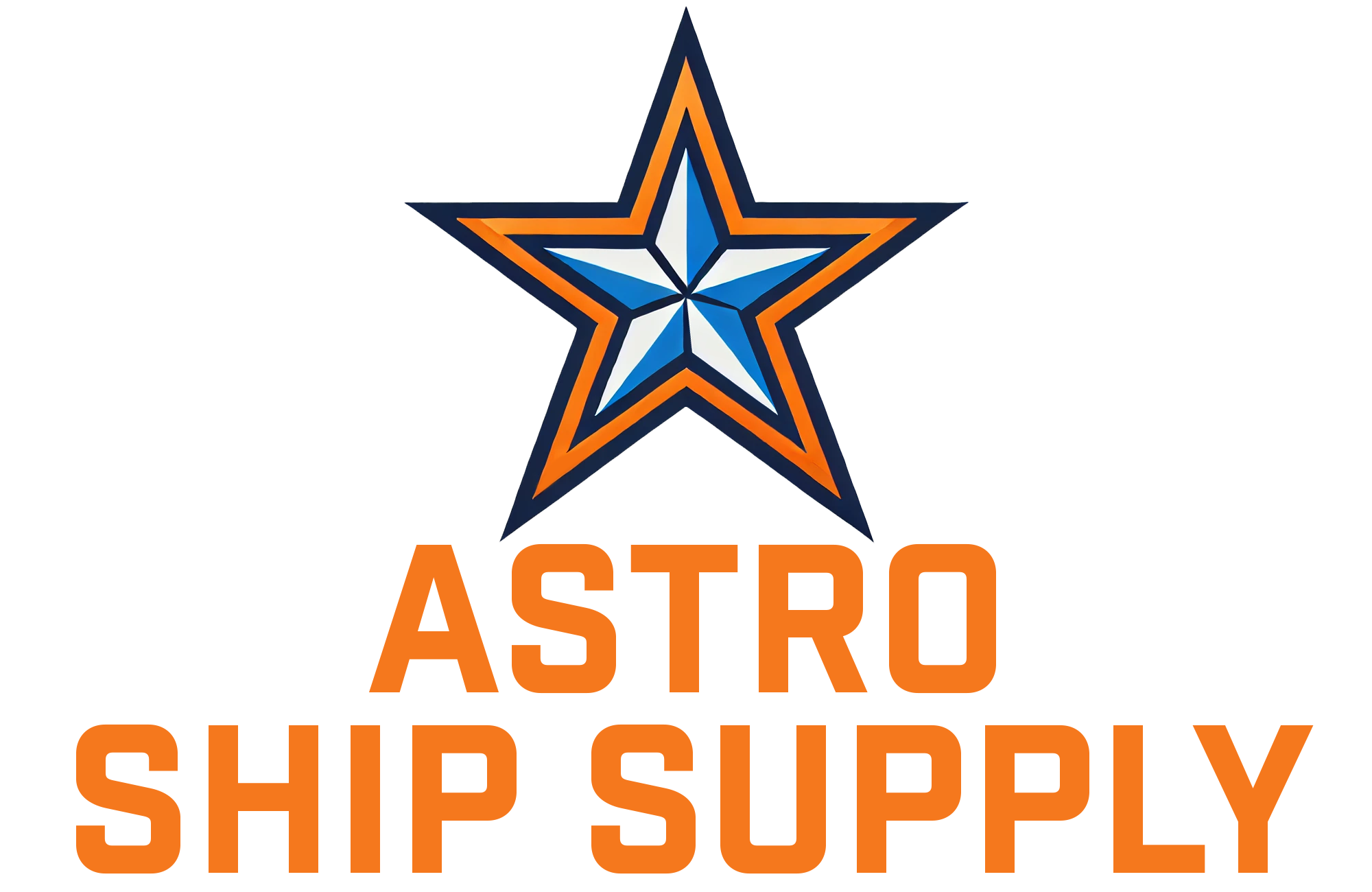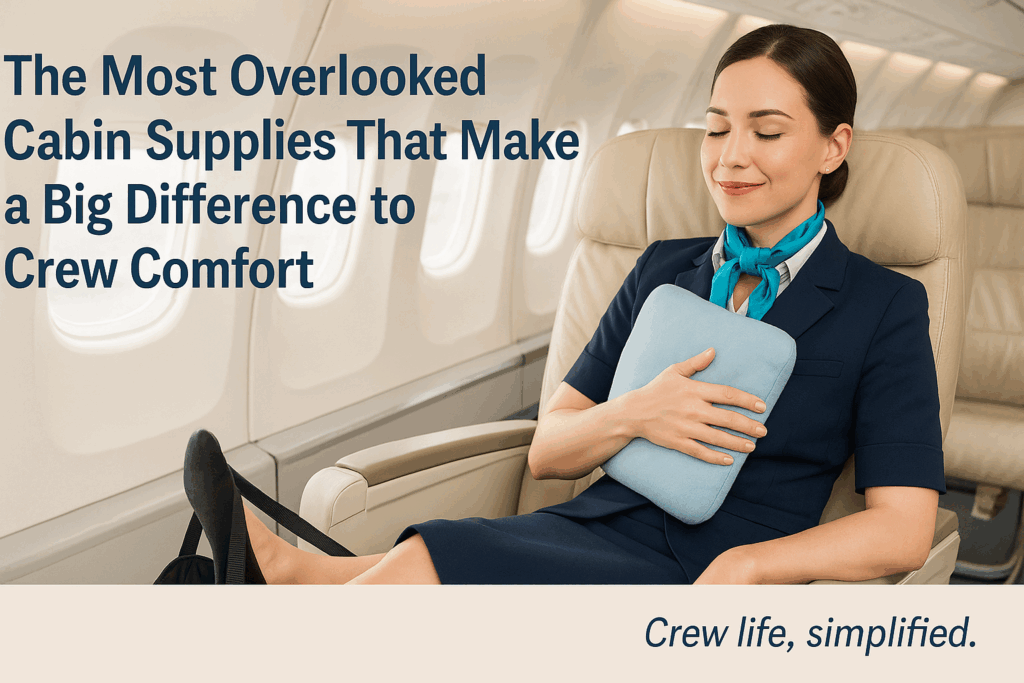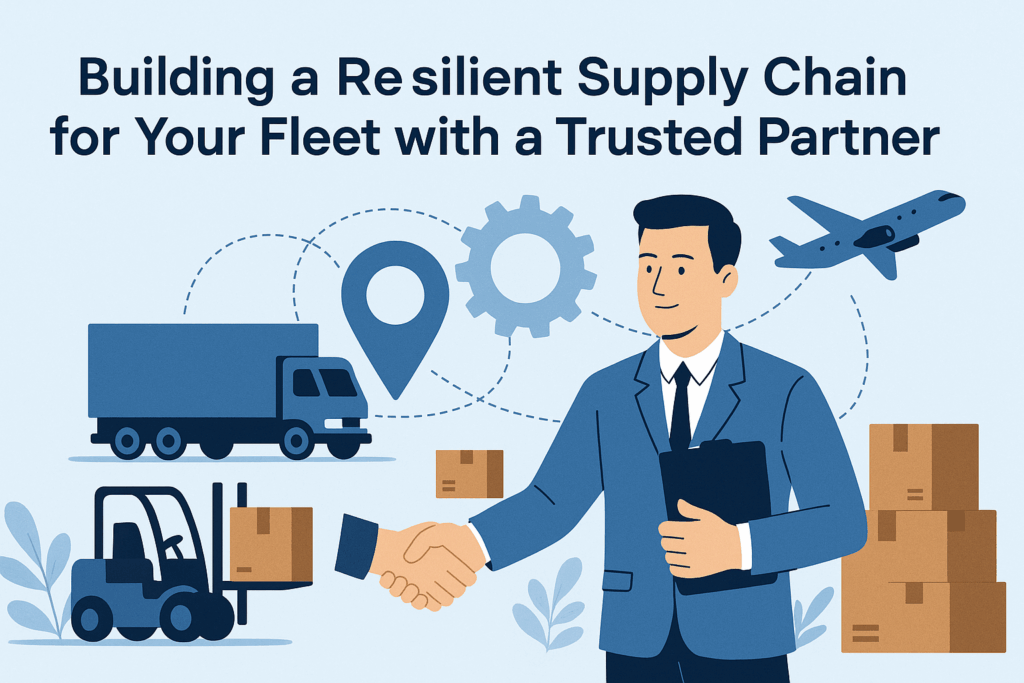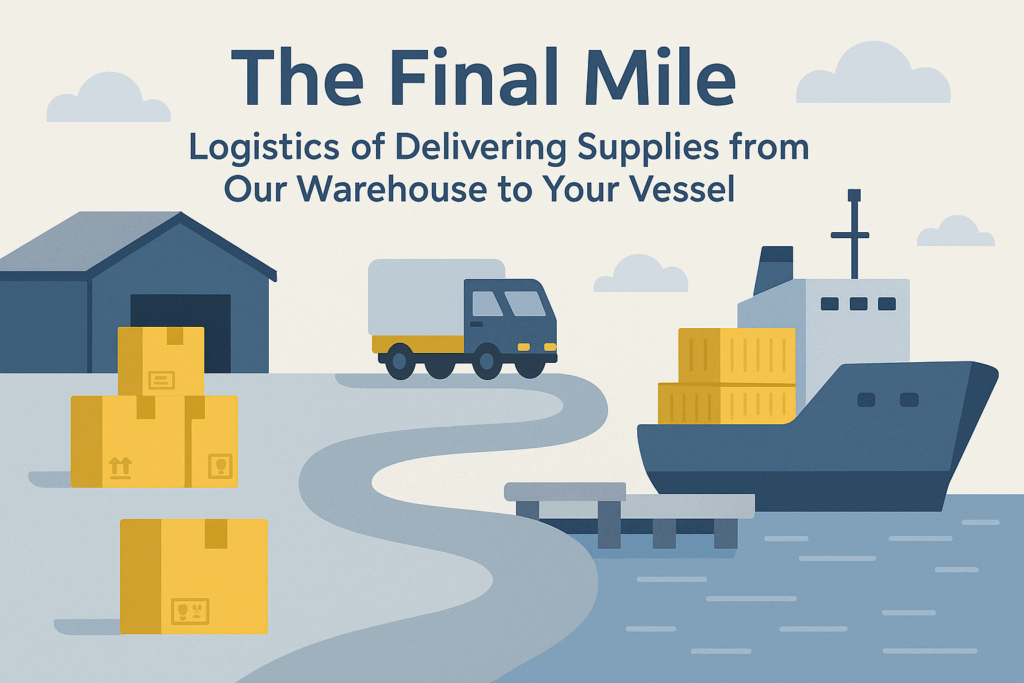The Gatekeeper: Understanding U.S. Customs and Border Protection (CBP) & Its Crucial Role
U.S. Customs and Border Protection (CBP), an agency within the Department of Homeland Security, is responsible for securing U.S. borders while facilitating lawful international trade and travel. For the maritime industry, CBP’s role includes:
- Enforcing Customs Laws: Ensuring all goods, including ship supplies, entering or departing the U.S. comply with U.S. laws and regulations (primarily Title 19 of the U.S. Code).
- Revenue Collection: Assessing and collecting duties, taxes, and fees on imported goods, where applicable.
- Preventing Prohibited Imports: Interdicting illegal drugs, contraband, pests, and diseases.
- Ensuring Vessel and Cargo Security: Implementing measures to protect against terrorism and other threats.
Non-compliance with CBP regulations can lead to significant consequences, including hefty fines, seizure of goods, vessel delays, denial of entry, and even criminal charges in severe cases. Therefore, a thorough understanding and proactive approach to compliance are indispensable. Reputable ship chandlers, like Astro Ship Supply, understand these complexities and operate with “U.S. Customs and Border Protection requirements” at the forefront of their service delivery, ensuring that the supplies they provide meet all necessary declarations and standards.
Key Categories of Ship Supplies & Their U.S. Customs Implications
Different types of ship supplies have varying customs treatments. It’s crucial to understand these distinctions for accurate declarations.
H3: Provisions and Consumables (Food, Water, Cleaning Supplies)
These are goods intended for consumption by the crew and passengers or for the operation and maintenance of the vessel.
- Declaration: Must be declared on CBP Form 1303 (Ship’s Stores Declaration).
- Duty Status: Generally considered “vessel supplies” and not subject to duty if consumed onboard. However, if any portion is unladen for use ashore in the U.S. (other than under specific CBP authorizations), it would become subject to entry and duty.
- Inspections: Fresh fruits, vegetables, meats, and dairy products are subject to inspection by CBP Agriculture Specialists to prevent the introduction of foreign pests and diseases. Ensure your provisions and food supply meet U.S. Department of Agriculture (USDA) and Food and Drug Administration (FDA) requirements where applicable.
H3: Bonded Stores (Tobacco, Alcohol, Perfumes, etc.)
These are items typically sold to crew or passengers or consumed onboard, held under customs bond (duty-free).
- Strict Regulations: U.S. CBP has very stringent rules for bonded stores. They must be kept under seal while in U.S. territorial waters and ports.
- Declaration: Accurately declared on CBP Form 1303. Quantities must be precise. For a deeper dive, you might want to read our article on “Smooth Sailing with Bonded Stores.”
- Seals: CBP may verify seals upon arrival and apply new ones if necessary. Unauthorized breaking of seals leads to severe penalties.
- No Consumption/Sale in Port: Generally, bonded stores cannot be opened, sold, or consumed while the vessel is in a U.S. port or its territorial waters unless specific CBP permission is granted (which is rare for typical consumption).
H3: Deck & Engine Stores (Spares, Paints, Chemicals, Ropes, etc.)
These are supplies for the operation, maintenance, and repair of the vessel.
- Declaration: Declared on CBP Form 1303.
- Duty Status:
- Consumed Onboard: Items like paint, chemicals, or lubricating oils consumed in the operation of the vessel are generally not dutiable.
- Unused Spares Remaining Onboard: Spare parts that remain onboard as part of the vessel’s equipment are generally not dutiable.
- Spares Landed for Use/Installation: If deck supplies & equipment like spare parts are landed in the U.S. to be installed on the vessel during its stay, or if they are foreign-origin spares that constitute a permanent addition to the vessel’s equipment, they may need formal entry and could be subject to duty.
- Temporary Importation under Bond (TIB): Certain vessel equipment, particularly specialized tools or high-value spares, might be entered under a TIB if they are to be used in the U.S. temporarily and then exported.
H3: Cabin Supplies (Linens, Toiletries, Furnishings)
Items for the accommodation and comfort of the crew.
- Declaration: Generally part of the overall Ship’s Stores Declaration (CBP Form 1303).
- Duty Status: If these cabin & accommodation supplies are reasonable in quantity and for use by the crew onboard, they are typically not dutiable. Large quantities intended for unlading could attract CBP attention.
H3: Foreign Repairs and Equipment Landed for Repair
- Declaration of Foreign Repairs (Vessel Repair Entry – VRE): U.S. flag vessels that have undergone repairs or acquired equipment in a foreign country must declare these on CBP Form 226 upon their first arrival in the U.S. A 50% ad valorem duty generally applies to the cost of these repairs, with some exemptions.
- Equipment Landed for Repair in the U.S.: If ship’s equipment is landed for repair in the U.S. and will be returned to the vessel, specific customs procedures must be followed to avoid duty implications, potentially involving a TIB or other conditional free entry provisions.
Essential U.S. Customs Procedures & Documentation
Accurate and timely submission of documentation is critical for customs clearance in U.S. ports.
H3: Advance Manifest Rule & Electronic Submissions
CBP requires electronic submission of detailed cargo, crew, and passenger information before a vessel arrives in a U.S. port. For vessel supplies, while not “cargo” in the commercial sense, accurate onboard declarations are part of the overall vessel reporting.
- eNOA/D: Electronic Notice of Arrival/Departure is required for most commercial vessels.
- Automated Manifest System (AMS): Used for cargo declarations.
H3: Key CBP Forms for Ship Supplies & Vessel Clearance
While ship agents typically handle the filing, Masters and procurement officers should be familiar with these forms, many ofwhich can be found on the official CBP Forms page:
- CBP Form 1300 (Vessel Entrance or Clearance Statement): Basic document for formal entrance and clearance.
- CBP Form 1302A (Cargo Declaration – Outward With Commercial Forms): Though for outward cargo, understanding manifest requirements is key. Inward cargo is declared via other means, often electronically.
- CBP Form 1303 (Ship’s Stores Declaration): This is THE critical form for declaring all supplies onboard, including provisions, bonded stores, deck/engine stores, cabin supplies, narcotics (ship’s medical chest), and firearms/ammunition (if any, under strict control). Accuracy is paramount.
- CBP Form 1304 (Crew’s Effects Declaration): Each crew member declares their personal belongings. Masters should ensure crew compliance.
- CBP Form 3171 (Application-Permit-Special License Unlading-Lading-Overtime Services): Required for any unlading or lading activity, or for CBP services outside normal hours.
- CBP Form I-418 (Passenger List-Crew List): For declaring crew and passengers.
Quotable List: Key Documents Typically Required for U.S. Customs Clearance (Vessel Arrival)
- ☑️ CBP Form 1300 (Vessel Entrance or Clearance Statement)
- ☑️ CBP Form 1303 (Ship’s Stores Declaration)
- ☑️ CBP Form 1304 (Crew’s Effects Declaration – consolidated or individual)
- ☑️ CBP Form I-418 (Crew List / Passenger List)
- ☑️ Last Port Clearance
- ☑️ Health declarations (Maritime Declaration of Health)
- ☑️ Ballast Water Reporting Form
- ☑️ Cargo Manifests (if carrying cargo)
- ☑️ Vessel’s Registry and other certificates
H3: The Imperative of Accurate Declarations
Submitting truthful, precise, and complete declarations cannot be overstressed. Any discrepancies, even unintentional ones, can be interpreted as false declarations, leading to penalties. “When in doubt, declare it” is a good principle. Ensure quantities, descriptions, and values are correct.
H3: Inspections and Audits
CBP officers have the authority to board vessels, inspect all areas (including sealed stores), and audit records. Cooperation, courtesy, and readiness to provide documentation are essential. Maintaining organized and accurate records will facilitate any inspection.
H3: Working with Ship Agents and Chandlers
Knowledgeable ship agents are invaluable for navigating the complexities of U.S. customs procedures. They handle most of the electronic filings and advise on specific port requirements. Similarly, a reputable ship chandler, like Astro Ship Supply, plays a crucial role by:
- Ensuring goods supplied comply with U.S. standards (e.g., FDA for food, EPA for certain chemicals).
- Providing accurate invoices and documentation for the supplies delivered, which helps in making correct declarations.
- Understanding the regulations for bonded stores and ensuring secure, compliant delivery. Astro Ship Supply’s adherence to “Bulk Compliance” as per CBP requirements, and its “ISPS Code compliance,” showcases this commitment.
Navigating Specific Scenarios & Potential Pitfalls
Understanding how to handle common situations can prevent costly mistakes.
H4: Discrepancies in Quantities
If a discrepancy is found between declared quantities and actual stock (e.g., during an internal audit before CBP inspection or during a CBP inspection itself), it should be reported to CBP immediately. Attempting to conceal discrepancies is a serious offense. Document how the discrepancy occurred if known.
H4: Prohibited or Restricted Items
Ensure no prohibited items (e.g., illegal drugs, certain weapons, unapproved animal/plant products) are brought into U.S. waters. Some items may be restricted (e.g., firearms require special permits and secure storage). Refer to official CBP guidance on Prohibited and Restricted Items.
H4: Last-Minute Supply Orders
If supplies are taken on in a U.S. port, ensure they are from reputable sources and that all customs formalities for these local purchases or deliveries are handled correctly. This might involve amending the Ship’s Stores Declaration if significant quantities are loaded.
H4: Crew Purchases Ashore
Crew members purchasing items ashore that they intend to keep on the vessel or take out of the U.S. must be mindful of customs regulations. High-value items or large quantities might need to be declared on their CBP Form 1304 or could be subject to duty/tax if they exceed personal allowances when brought back to the vessel or taken ashore again.
The Role of Your Ship Chandler in U.S. Customs Compliance
A proactive and knowledgeable ship chandler is a vital partner in achieving customs compliance. Beyond just delivering goods, a quality supplier like Astro Ship Supply contributes by:
- Maintaining Expertise: Staying up-to-date with current CBP regulations and requirements.
- Ensuring Product Compliance: Sourcing and supplying goods (especially provisions and bonded items) that meet U.S. health, safety, and customs standards.
- Providing Accurate Documentation: Supplying detailed and correct invoices and delivery notes that align with the goods delivered, facilitating accurate declarations by the vessel’s command.
- Secure Handling of Bonded Stores: Following all CBP procedures for the sealing, transport, and delivery of bonded goods.
- Communication: Liaising effectively with ship agents and vessel command regarding supply logistics and documentation.
Choosing a chandler committed to compliance can significantly reduce the risk of customs-related problems. For more insights on maritime best practices and regulatory navigation, explore our Astro Ship Supply Blog. If you require supplies in the Port of Houston or Gulf Coast region and prioritize compliance, don’t hesitate to request a quote or contact us.
Use Case Scenario: “MV Atlantic Voyager” vs. “MV Pacific Drifter” – A Tale of Two Clearances
The “MV Atlantic Voyager” always prepared meticulously for U.S. port calls. Their Master ensured all store declarations were cross-checked, and they worked with a reputable chandler and agent who were experts in CBP procedures. Their records were immaculate. Upon arrival in Houston, their CBP clearance was swift, with officers finding all paperwork in order and physical checks confirming declarations. The vessel experienced minimal delay.
Conversely, the “MV Pacific Drifter” had a more lax approach. Store records were sometimes incomplete, and declarations were occasionally rushed. On one U.S. port call, CBP found significant discrepancies in their bonded store declaration and undeclared foreign spare parts. The result: a hefty fine, a full rummage of the vessel causing a 24-hour delay, and a black mark on their compliance record, leading to more intense scrutiny on subsequent U.S. visits.
This comparison underscores how proactive compliance and partnerships with knowledgeable entities (like Astro Ship Supply, known for its commitment to excellence) directly impact operational efficiency and financial outcomes.
Conclusion: Proactive Compliance – The Key to Smooth U.S. Port Calls
Navigating U.S. customs regulations for ship supplies demands diligence, accuracy, and a commitment to transparency. By understanding the requirements, maintaining meticulous records, and working with experienced partners, vessel managers and procurement officers can ensure their U.S. port calls are smooth, efficient, and free of costly surprises. Proactive compliance is not just a regulatory burden; it’s a cornerstone of professional maritime operations.
Frequently Asked Questions (FAQ)
What is the significance of the “first U.S. port of arrival” for customs purposes?
The “first U.S. port of arrival” is critical because it’s typically where a vessel arriving from a foreign port must make its formal customs entry into the United States. This includes submitting all required declarations (Ship’s Stores, Crew Effects, Cargo Manifest, etc.) and undergoing initial CBP inspections. For U.S. flag vessels, it’s also where duties on foreign repairs must be declared and paid. Subsequent calls at other U.S. ports during the same voyage may involve less intensive customs formalities if the vessel is proceeding coastwise with a permit to proceed (CBP Form 1300).
How are narcotics (ship’s medical chest) and any firearms handled by U.S. CBP?
Both are subject to very strict control:
- Narcotics (Ship’s Medical Chest): All narcotics and controlled drugs in the ship’s medical chest must be meticulously declared on the Ship’s Stores Declaration (CBP Form 1303) with precise quantities and descriptions. They must be kept under secure lock and key (double-locked is best practice), accessible only to the Master or a designated medical officer. CBP may inspect the medical chest and audit the drug logbook. Discrepancies can lead to severe penalties.
- Firearms and Ammunition: Any firearms and ammunition onboard (e.g., for security against piracy, signal pistols) must also be declared on CBP Form 1303. They must be kept under strict lock and key, usually in the Master’s safe or a dedicated armory. CBP will typically place them under seal while the vessel is in U.S. waters/ports. Unauthorized access or use is a serious offense.
It is crucial to consult the most current CBP regulations or a ship’s agent for specific requirements before arrival.
What are the general U.S. customs requirements for vessel spare parts arriving by airfreight to meet a ship in a U.S. port?
Spare parts flown in to meet a vessel (“spares in transit” or “ship’s spares in bond”) are subject to specific customs procedures:
- Customs Entry: The parts must be formally entered with CBP upon arrival in the U.S. This is typically handled by a customs broker or the ship’s agent.
- In-Bond Movement: Often, they are moved “in-bond” from the airport to the vessel under a CBP transit document (e.g., CBP Form 7512 – Transportation Entry and Manifest of Goods Subject to CBP Inspection and Permit). This allows the parts to reach the vessel without formal duty payment, provided they are for installation on, or use by, a vessel engaged in international trade.
- Delivery to Vessel: Once the parts reach the vessel, proof of lading or export (if the vessel departs foreign) is required to close out the in-bond transaction.
- Duty Implication: If the parts are foreign-origin and are effectively “imported” for permanent use on the vessel within U.S. territory (beyond just transiting or for immediate installation on a vessel soon departing foreign), duties might apply. The specifics depend on the nature of the parts, the vessel’s trade, and origin of goods.
It’s vital to coordinate closely with a customs broker and the ship’s agent to ensure compliance for such shipments.
Can a vessel transfer bonded stores to another vessel in a U.S. port?
Transferring bonded stores between vessels in a U.S. port is highly restricted and generally not permitted without specific prior authorization from U.S. CBP. Such a transfer would typically require:
- A formal application to CBP detailing the reasons for the transfer and the items involved.
- Customs supervision of the entire transfer process.
- Accurate documentation and accounting for the stores on both the transferring and receiving vessels.
Unauthorized transfers can lead to severe penalties, including seizure of the goods and fines. It is far more common and advisable for vessels to receive bonded stores directly from a licensed and CBP-compliant ship chandler.
Where can I find official U.S. CBP forms and detailed regulations for vessel operations?
Official U.S. CBP resources are the best source of information:
- CBP Forms: Many commonly used CBP forms can be downloaded from the official CBP Forms page on the CBP website (cbp.gov).
- Regulations: Customs regulations are primarily found in Title 19 of the Code of Federal Regulations (19 CFR). The e-CFR is available online. Specific parts relevant to vessels include 19 CFR Part 4 (“Vessels in Foreign and Domestic Trades”).
- CBP Website (cbp.gov): The CBP website has extensive information for carriers, importers, and the maritime industry, including operational manuals, directives, and FAQs. Searching for “vessel reporting requirements” or specific topics can yield valuable guides.
- Port-Specific Information: Local CBP port offices may also provide specific guidance or port policies. Your ship’s agent is usually the best contact for local nuances.
Always ensure you are referring to the most current versions of forms and regulations.






